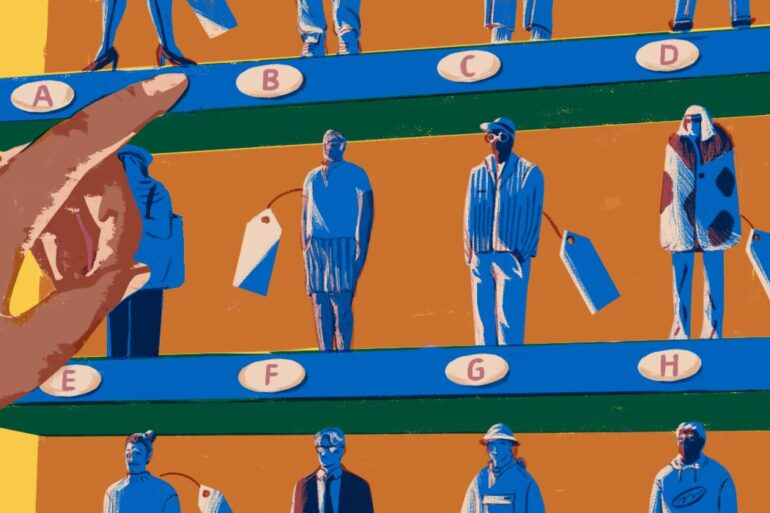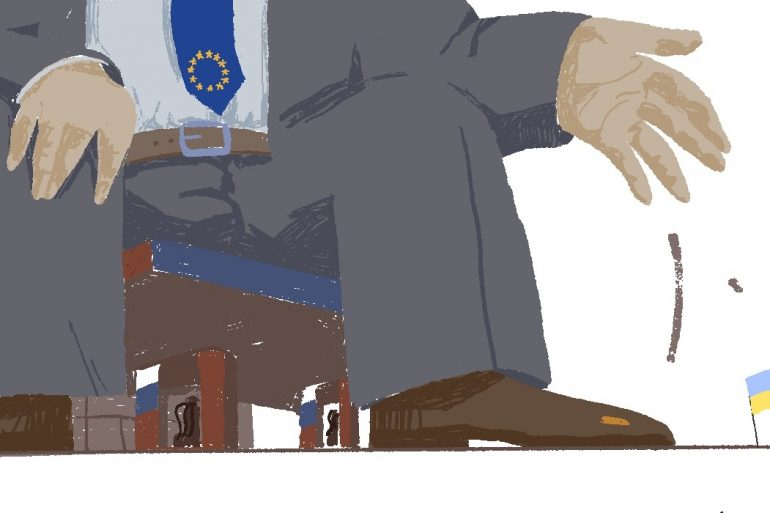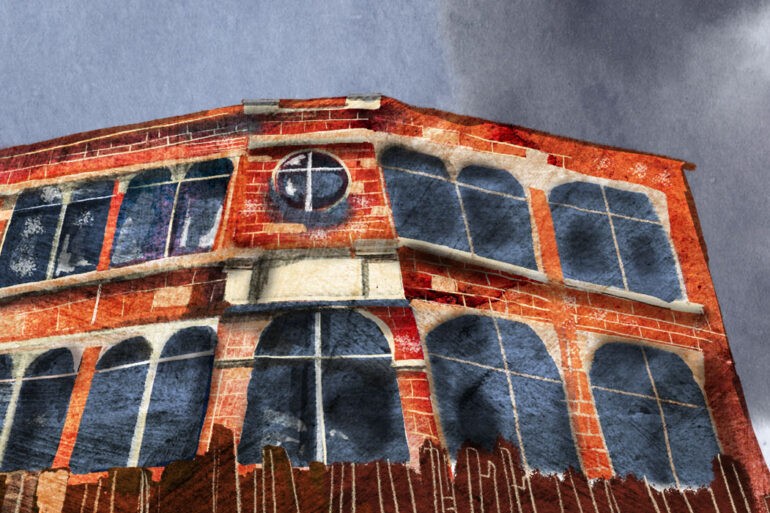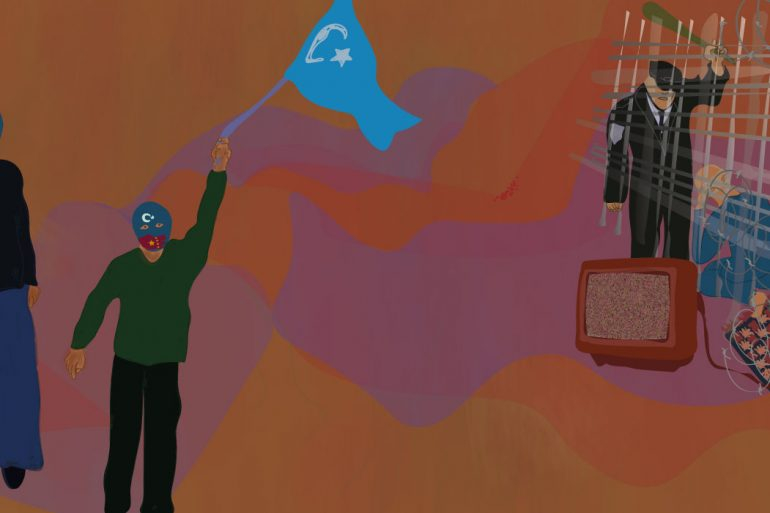The world is talking about COVID-19. We have seen the ways that it disproportionately impacts the most vulnerable, from the people on the frontline of health and social care to the communities with the least access to this care: refugees and displaced people.
While we have seen how worrying the virus is in refugee camps across the globe, our concern cannot start and end here. Refugees do not just exist in refugee camps. By definition, they are individuals on the move: people fleeing war, persecution and a myriad of other nightmares. Since the beginning of the refugee crisis in 2015, the flight from such violence has transformed the Mediterranean Sea into the world’s deadliest migration route.
With an ever increasing death toll at its borders, EU policy has favoured combatting international smuggling and trafficking over dedicated search and rescue missions. The former, alongside anti-terror objectives, is the main remit of the EU Border and Coastguard Agency, also known as Frontex.
This skewed policy emphasis, also shared by previous EU maritime operations, has resulted in a lethal protection gap that has left human right obligations to be borne by civil society actors. Ships run by a number of European NGOs, which collectively form the civil fleet, monitor the search and rescue zones of the Mediterranean and respond to distress signals. One organisation has been involved in the rescue of over 35,000 people since 2015.
In a pattern that has been developing more and more glaringly since 2018, the work of these charities has increasingly been scaled back, even criminalised by EU states wishing to mitigate so called <strong>‘pull-factors’ of migration. We only have to look to last year’s arrest of Sea-Watch 3’s captain Carola Rackete, or, at the end of 2018, the forced suspension of the operations of the Médecins Sans Frontières (MSF) vessel Aquarius, to see the extent that such criminalisation can reach. Numerous rescue ships have also been subject to administrative blockades, which can immobilise operations for significant periods, effectively preventing a civil response at sea.
In recent weeks and months, in spite of a global pandemic or simply because the virus <strong>does not pose the magnitude of threat that Libya does, attempted crossings of the Mediterranean have not abated. Latest statistics from UNHCR show that there have been 18,787 sea arrivals to Europe in 2020.
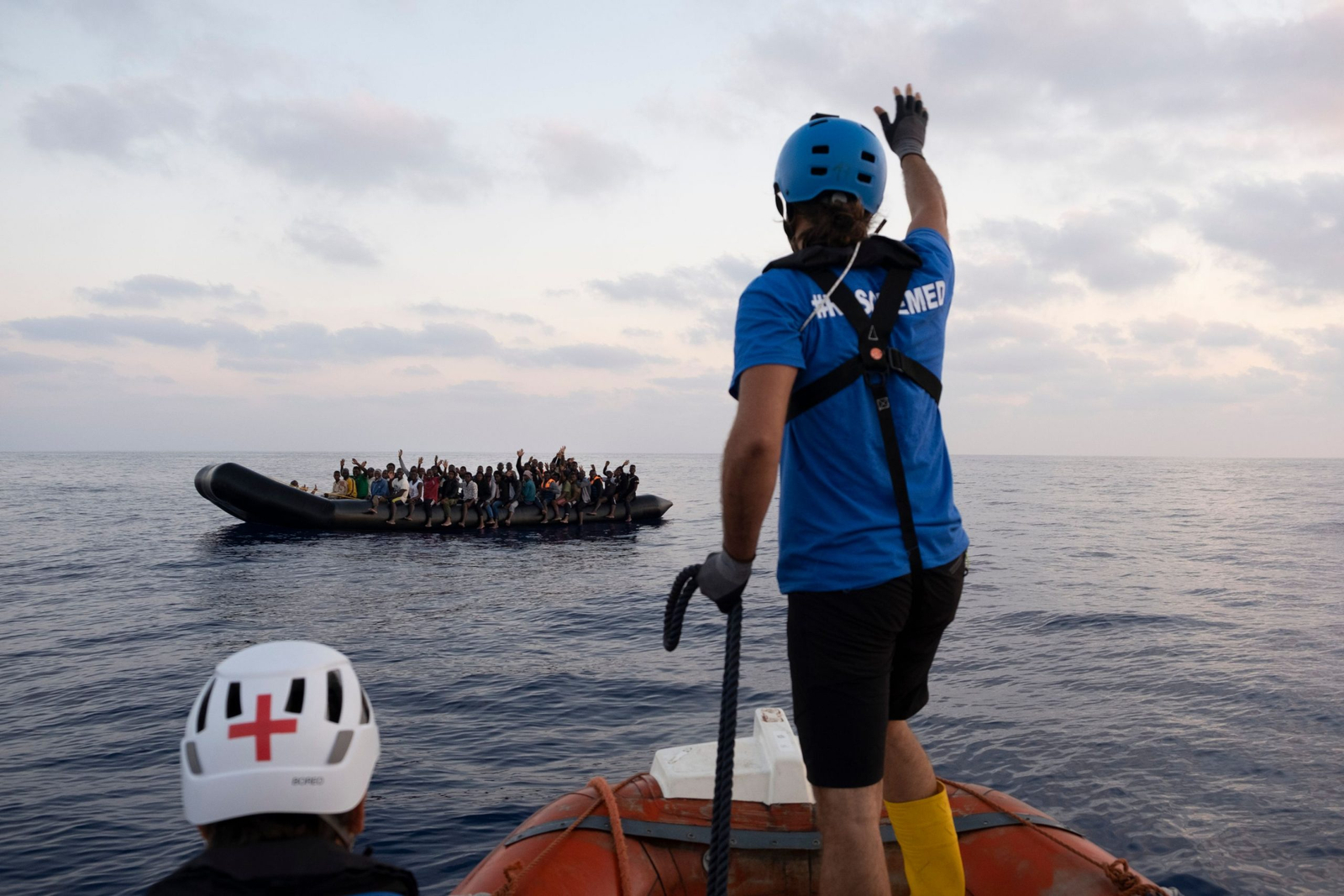
The Reality of Political Impediments for the Civil Fleet
From the statistic above, it is evident that sea rescue is as vital as ever. Yet the obstructions that the civil fleet have faced over previous years continue to disrupt their crucial work. Haidi Sadik, spokesperson for Sea-Watch, described such political impediments as “a reality” for sea rescue organisations.
With today’s backdrop of COVID-19, rescue vessels must meet heightened public health requirements before going to sea, while also conforming to travel restrictions.
For some organisations, operations are not workable, simply assembling a crew at departure ports has become impossible due to lock-down restrictions.
It is not just public health requirements, however, that are halting the work of the civil fleet. Various organisations have also expressed concern that EU states are leveraging the pandemic to disregard their human rights obligations. UN refugee agency UNHCR has emphasised that in spite of extremely difficult circumstances, “the protection of lives and fundamental human rights must remain at the forefront of our decision-making. Rescue at sea is a humanitarian imperative and an obligation under international law.”
MSF have also criticised various measures taken by states since the pandemic, which “leave the most vulnerable to die at Europe’s borders.”
At the beginning of April, Italy issued an auspicious decree after the Alan Kurdi ship, run by Sea-Eye, rescued 150 migrants. The decree effectively prohibits rescue ships from disembarking asylum seekers and displaced people saved at sea, marking a return to the hard-line anti-migrant policies of former Deputy Prime Minister Matteo Salvini.
Malta joined this stance 24 hours later and further added that they could not guarantee rescue for those in distress at sea.
Nonetheless, several rescues have been carried out by Maltese army patrol boats and fishing vessels. The migrants are now held on chartered former day cruise boats just outside Malta’s territorial waters. They will be kept here until an EU solution is found, which some are criticising as a failure to properly conclude their rescue obligations.
After completing a two week quarantine off the shore of Sicily, the Alan Kurdi has now been impounded by Sicilian authorities, along with the Aita Mari, of organisation Salvamento Maritimo Humanitario (SMH), due to ‘irregularities’. SMH’s President, Iñigo Mijangos, describes this as a “political action”; identical in character to previous administrative blockades. It is uncertain when both of the ships will be able to return to the search and rescue zone.
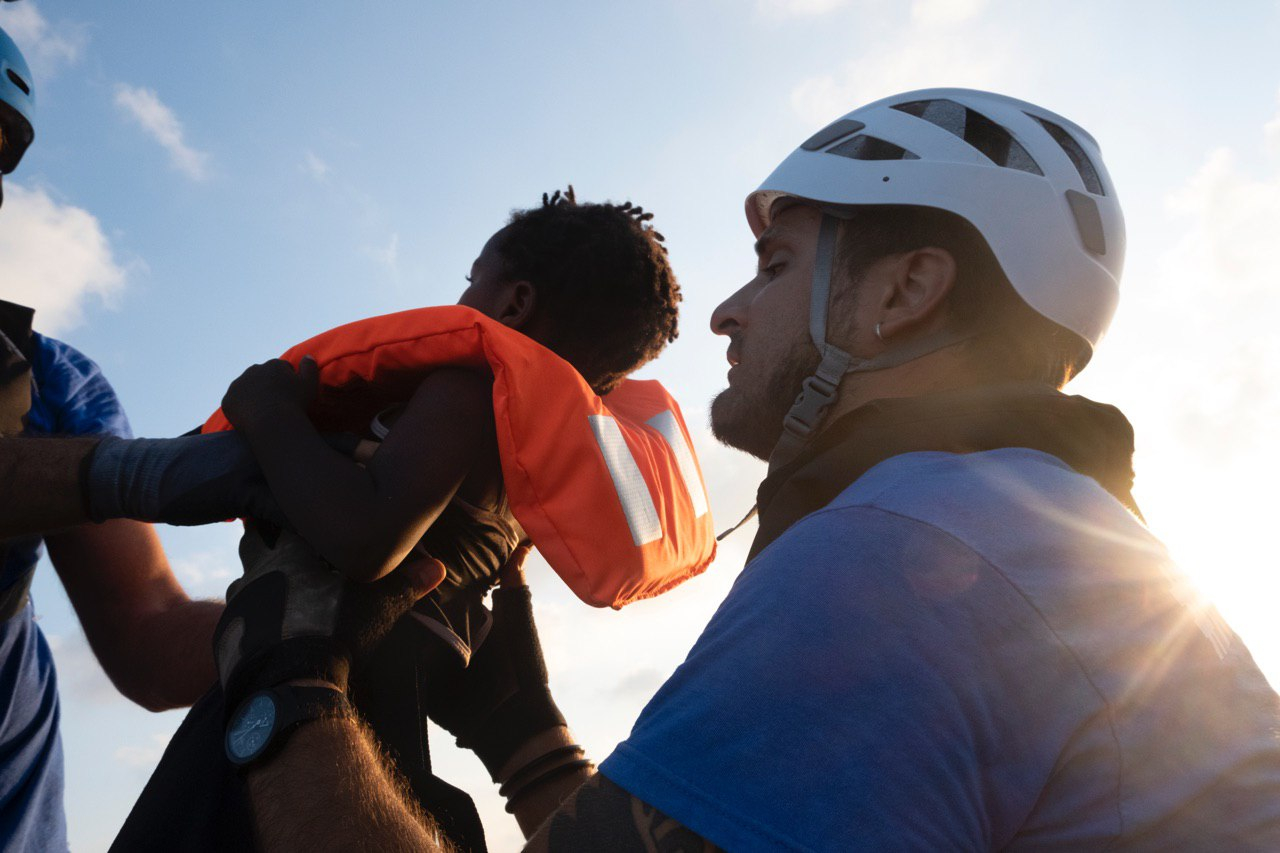
EU Pushback Policy
Alongside border controls and administrative red tape, EU coastal states are continuing to actively pursue policies which limit the arrival of displaced people.
Malta has been accused of ignoring distress calls within its search and rescue zone. In this report produced by Alarmphone in collaboration with Sea-Watch and Mediterranea, the organisations underline catastrophic policies which left 63 people in a rubber boat in distress for 72 hours, after which Malta then used a fishing vessel to return the people to Libya. Most are now in Tarik Al Sikka detention centre in Tripoli. Five individuals died on the journey back to Libya from dehydration and hunger. Another seven are missing, thought to have drowned.
However horrific, this seems to be just an insight into the latest Maltese anti-migrant policies, which sees the state using privately owned fishing trawlers to intercept migrant boats and forcibly return them to Libya.
Subscribe to shado's weekly newsletter
Exclusive event news, job and creative opportunities, first access to tickets and – just in case you missed them – our picks of the week, from inside shado and out.

Responding to this development, Mijangos said “it’s incredible that this happens in the EU and that it is accepted, nobody is complaining. Malta is not applying the Search and Rescue Convention and it is not attending to its obligations as a state, to people at risk, or its human rights obligations.”
Haidi Sadik of Sea-Watch emphasised that pushbacks and partnering with Libya are familiar policies, arguing that this latest tactic “is more blatant but it’s not new.”
Pushbacks to Libya have been standard policy since the 2017 EU-Libya deal, in which tens of millions of euros have been mobilised to employ the Libyan Coastguard to intercept migrants at sea and prevent arrivals to Europe. Yet experts, including Human Rights Watch and the UN Special Rapporteur on Torture, argue that participation in returning people to Libya amounts a violation of international law’s concept of ‘non-refoulement’ – a notion which prohibits return to a place where there is a real risk of harm, or a risk to life.
A spokesperson from Alarmphone, the emergency hotline for refugees in distress in the Mediterranean, stressed that not enough attention is being paid to Libya, both to the escalating war and to the number of Corona infections. “European border restrictions have amplified over recent weeks and detrimentally affected those who are stuck in Libya and elsewhere where they are exposed to violence and torture.”
Pushback policy is also affecting other maritime routes, notably in the Aegean Sea. Alarmphone has received reports of the Greek coastguard attacking migrant boats and returning them to Turkish waters where they were then left adrift.
The absence of search and rescue ships has, since the beginning of May, left the deadliest migration route on the planet without the actors who conduct and complete rescues according to the law and who are also most visibly and most consistently holding Europe to account.
Without the eyes and ears of dedicated search and rescue operations, the International Organisation for Migration (IOM) have, in this statement, expressed concern over “invisible migrant shipwrecks.” The IOM attribute decreasing fatality statistics on the Central Mediterranean route for March and April, compared to these months last year, to “a lack of assistance at sea”. Such a situation means that unsuccessful crossings, disappearances and deaths at sea are not comprehensively recorded, and subsequently lost to view to the international community.
Still today, there are no rescue ships active in the Mediterranean.
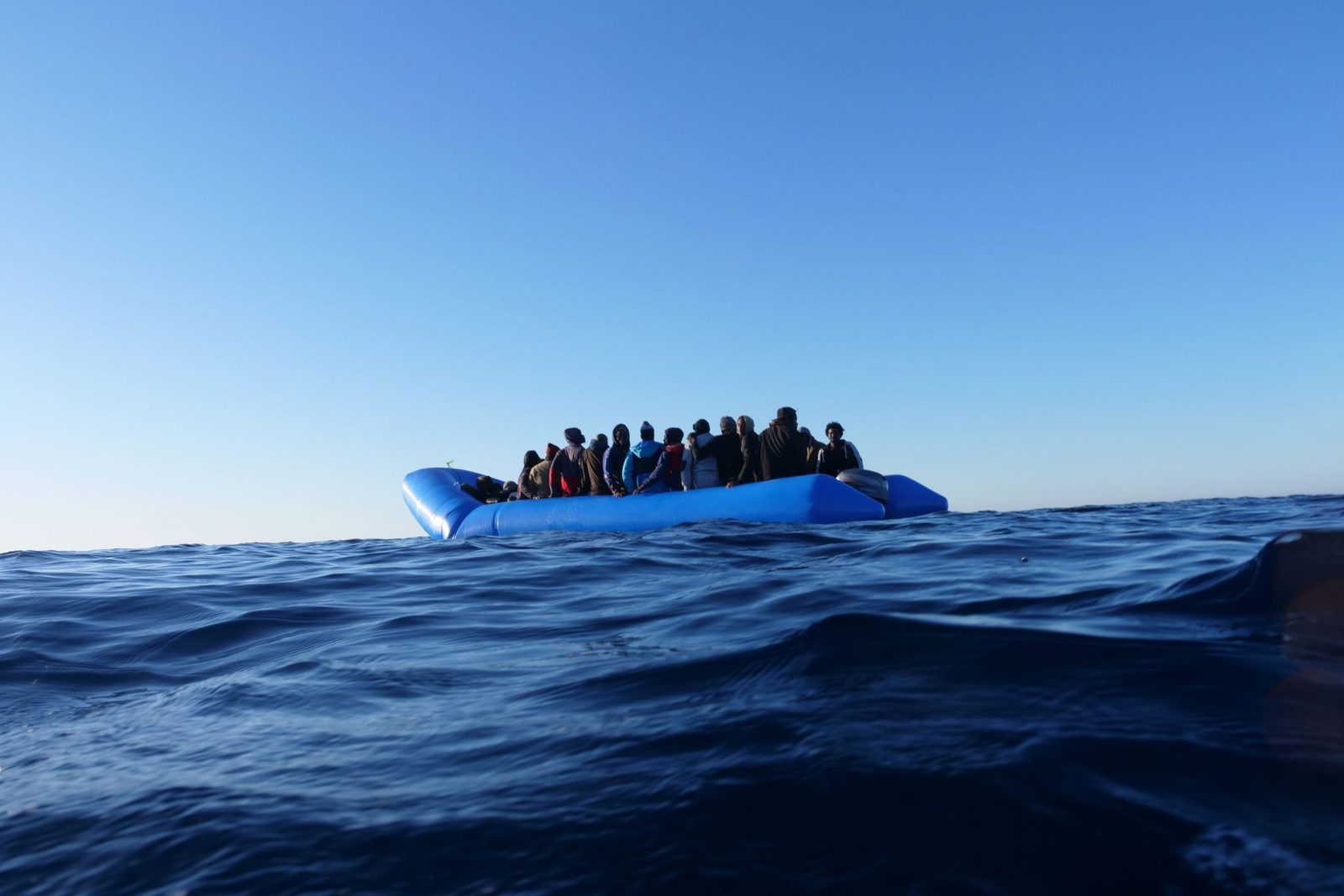
Facilitating Sea Solidarity
For Mijangos, “the solution is not increasing pressure on the people travelling or the ships providing humanitarian aid, it’s about looking for legal pathways and safe passage for everyone.”
At the best of times, sea solidarity charities confront state imposed barriers and hurdles. During this pandemic, their work has ground to a halt, between managing travel restrictions and increased safety requirements to port and state controls. In their absence, EU coastal states pursue a mixed bag of often deadly policies, ranging from pushbacks to non or delayed assistance to those in distress at sea.
For Sadik, these are old policies under the new banner of a pandemic.
Sadik strikingly compared the situation of rescue boats to that of key workers. “The work of frontline workers must be facilitated. Our rescue work should be done by the state, but instead it’s left to us, it’s put on the shoulders of civil society and then it’s not facilitated at all. Instead it’s cracked down upon and hindered.”
We are at the beginning of the summer season, so the number of attempted crossings is only going to increase, along with the number who will drown at sea. Given the immediate history of the EU’s response to sea solidarity efforts coupled with the uncharted context of a global pandemic, it is fair to assume that the civil fleet will be a skeletal operation in the crucial coming months.
For now, organisations are working to the best of their abilities. For SMH and the currently impounded Aita Mari, this means working with engineers and lawyers to help them pass port state controls, which the Sea-Eye’s Alan Kurdi is also subject to. Other organisations have not been able to launch rescue missions safely in the current context. Mediterranea Saving Humans, the charity which runs the Mare Jonio, has had to temporarily suspend operations. The two vessels under Sea-Watch; the Sea-Watch 3 and 4 are currently in ports in Italy and Spain respectively and looking to resume rescue work as soon as possible. Meanwhile, Sea-Watch is committed to monitoring and advocacy, and is closely supporting the Aita Mari and the Alan Kurdi.
A pandemic does not preclude the existence of human rights abuses. People have the right to be rescued at sea and delivered to a safe country. They also have the right to claim asylum in whichever country they choose.
For all the people attempting to cross the Mediterranean in the coming months, sea rescue must be facilitated. And when we talk of facilitation of sea rescue we must mean to the fullest capacity; where organisations are enabled and defended in extraordinary times and strengthened and applauded in ordinary times.
For many, the global pandemic has highlighted the importance of community. The organisations of the civil fleet are dependent upon the generosity of their supporters to continue their work. If you are able to donate, there is a list below of some of the people and boats on the frontline.
Salvamento Maritimo Humanitario: https://www.smh.eus/en/volunteers/
Sea-Watch: https://sea-watch.org/en/
Sea-Eye: https://sea-eye.org/en/
Mediterranea Saving Humans: https://mediterranearescue.org/en/
Médicins Sans Frontières : https://www.msf.org.uk
Alarmphone: https://alarmphone.org/en/



